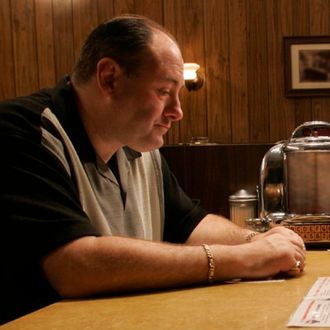
“It’s a compliment to The Sopranos and its creator that the show’s final episode aired seven summers ago and we’re still arguing about the meaning of that cut-to-black ending in Holsten’s diner,” wrote Matt Zoller Seitz, responding to a long Vox article published yesterday that resurrected a feverish debate among fans of one of the more beloved TV shows in history. That’s true. And it can also tell us something important about human psychology: Uncertainty drives us crazy.
This is pretty well established. A lot of research has shown that not knowing really bugs us and, in the worst cases, can actually lead to physical health problems. That’s part of the reason why, when there’s some sort of attention-grabbing information vacuum, we’re so quick to seek out and spread rumors, even when there’s little evidence they’re true: We derive great comfort from the mere possibility of having some big unresolved question answered.
Obviously, being unsure about whether a fictional character survived the finale of his show is not the same as, say, waiting for a biopsy result. But when you combine our general distaste for uncertainty with the fact that we have weirdly intimate relationships with fictional characters and get surprisingly upset when they die, it’s no wonder that The Sopranos’ sudden ending sparked such feverish speculation and debate on the part of shocked fans. I’m sure David Chase had higher artistic aspirations for his ending than fueling internet rumors, but he couldn’t have done a better job of that if he tried.




